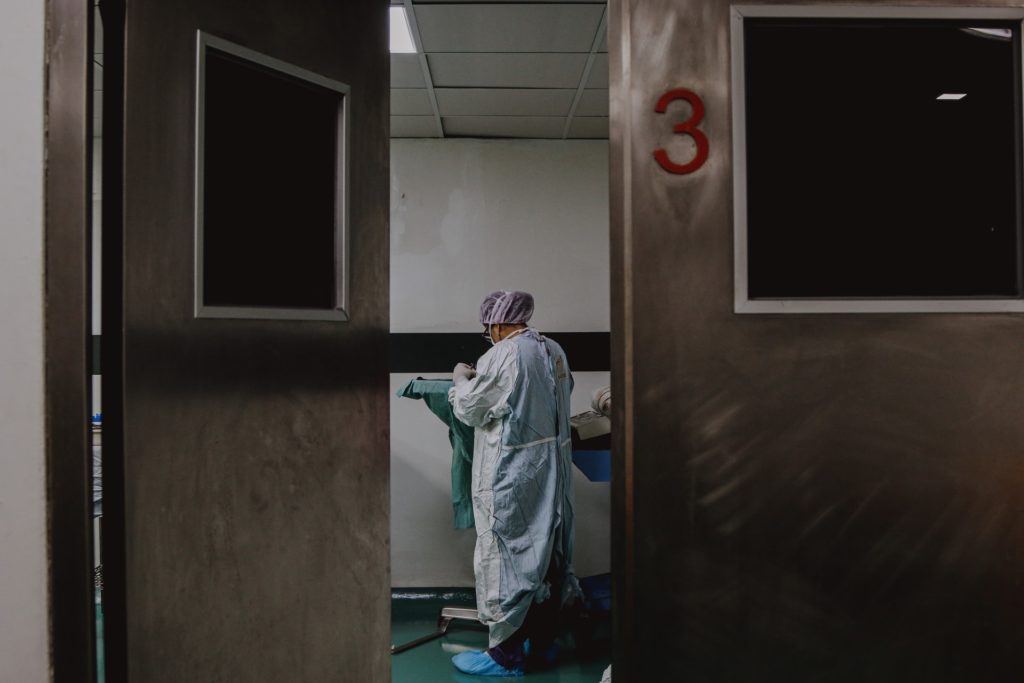The head of intensive care at Ghent University Hospital (UZ Ghent) says the facility will soon have to call in staff who have tested positive for Covid-19 in order to care for a swelling number of patients, as more and more of their own staff become infected.
“If someone's life is in danger, they would rather be helped by an infected staff member than not be helped at all,” Dominique Benoit told De Standaard.
As Covid figures soar in Belgium, the greatest problem facing the university network hospital isn’t the limited number of beds in their intensive care ward, but rather a shortage of staff as more and more of them become infected with the fast-spreading Omicron variant.
“If these employees are absent, there is not always a replacement,” Benoit said.
“Instead of triaging patients, in a force majeure situation it would be better to first deploy staff who have tested positive, but then not to patients with a weaker immunity.”
Life or death situations
Benoit says the goal of such a strategy is to avoid a scenario where staff are forced to choose who will or will not receive care.
“Those who test positive currently have to stay at home. That's absurd in a case of an emergency because many can work,” said Benoit.
“If then a patient comes in who was involved in a serious traffic accident and is in danger of dying, but who cannot be helped because of staff shortages, that patient would rather be cared for by an infected person than not at all.”
The strategy is feasible, according to Benoit, in part because so many Flemish people are vaccinated and therefore have less of a risk of becoming seriously ill if they contract the coronavirus.
Related News
- Covid-19 patients will not be given priority in hospital emergency phase
- Omicron could infect 50% of Europeans within two months, WHO warns
- Almost 2,000 Covid-19 patients currently hospitalised
Taking the necessary precautions
“Vaccinated patients are already protected and we can protect them even more by being extra careful and, for example, by using FFP-2 masks,” Benoit said.
“Today we can still run with the staff that remains, but in the coming weeks there could be so many staff absent that we won’t be able to run otherwise. We are not going to be able to stop this.”
Unlike some other hospitals, UZ Ghent is no longer reserving beds for Covid-19 patients.
“We have always said that those who do not have covid should be treated as well as those who are infected,” Benoit said.

